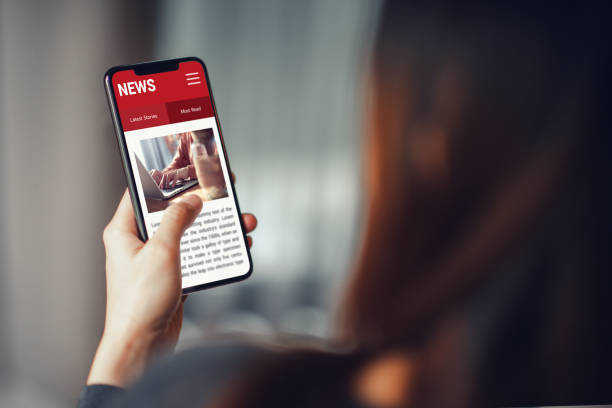The 9-Minute Rule for Online News
The 9-Minute Rule for Online News
Blog Article
Examine This Report about Online News
Table of ContentsFascination About Online NewsIndicators on Online News You Should KnowThe 4-Minute Rule for Online NewsAll About Online NewsNot known Factual Statements About Online News
As an example, figures for the proportion of people paying for on-line information were within the margin of mistake for both studies. Let's first think about people who have access to information that you would typically have to pay for. It makes sense to start below due to the fact that some individuals have actually accessibility to paywalled news through free tests, by means of their task, and so forth.There are different forms of gain access to, but the three most common are subscriptions to on-line information from a single brand, registrations to a print/digital package from a single brand, and a registration to several brands accumulated in one location. Of these, digital-only subscriptions to a single brand name are the most common kind of gain access to in all three nations.
Paid information collectors are relatively popular in the United States, mostly many thanks to Apple Information+, yet presently these are much less usual than memberships to solitary news brand names. As we saw in the Executive Summary, people mostly have access to among a tiny group of famous brands. In the United States, over half of these individuals have access to either the New York Times or the Washington Article, and in the UK, it's The Times or the Telegraph.
Online News for Beginners
Nevertheless, many of this group have access due to the fact that they are paying for memberships with their very own money 75% in Norway and the UK, and 84% in the United States. For under-45s the figure is lower. However amongst those 45 and over, the large bulk of those that have accessibility are paying with their own money.
In the United States and specifically Norway, many publishers have presented paywalls, which indicates even more individuals will certainly be asked to pay probably enhancing a feeling of deficiency and producing a sensation that information can be worth paying for. In the UK, by contrast, only a relatively handful of publications attempt to charge for news.
In this regard it is interesting to contrast the various reasons subscribers give up the USA and UK for paying for online information. In general, the most essential factor is the diversity and high quality of the content. In both nations, clients believe they are getting much better information than from free resources.

Online News Can Be Fun For Everyone
These additional components seem to be particularly useful for retention as they develop behavior and are much less replicable elsewhere. For Norwegians too the diversity of web content came out on leading together with ease and simplicity of use. 'Aftenposten is a major newspaper with great top quality', said one participant, yet it was striking that 'sustaining helpful hints great journalism' is much less of an inspiration (21%) maybe due to the fact that traditional media outlets are viewed as much less polarised in Norway.
Furthermore, around half of those that presently have open door claim that they might start paying if their open door goes out. This is motivating, and perhaps much more motivating still is that these figures suggest retention rates that are comparable to those for registrations to video clip and audio streaming services like Netflix and Spotify.
It can likewise be viewed as a helpful tip that individuals do not necessarily subscribe for life, and boasts about the number of 'brand-new clients' might not be telling the entire tale (Online News). There's substantial 'churn' around, as several people end their complimentary tests prior to they need to pay, or simply cancel their subscriptions to invest their money on various other points
Female, 37, Norway It set you back method too much and I can Find Out More get round the paywall. Male, 36, US Too costly, really felt there was absolutely nothing I could not obtain totally free on Apple News. Women, 19, UK In the UK, the variety of people that used to have access to paid news (10%) is close to the number of people that currently have gain access to (9%) with the equal numbers from the United States and Norway higher still (albeit lower than the number of people with gain access to).
Online News for Beginners
As we have actually already seen, existing subscribers are reasonably satisfied, but with revenue from digital advertising unclear many publishers will be looking to increase the number of new subscribers. In comparing our three countries we see some intriguing distinctions that can inform publisher approaches. We observe a really high percentage (40% in the US and 50% in the UK) that say that absolutely nothing could encourage them to pay.
However in Norway, where interest in information tends to be higher and where cost-free news is extra restricted just 19% say they couldn't be convinced. Cost and ease are a few of the vital factors that might make a difference. In Norway, a 3rd (30%) state they may subscribe if it was cheaper and 17% if they might pay to access several websites from a single repayment.
Publishers have significantly been using differential pricing to choose up service from those not likely to pay full price (e.g. overseas clients and students). Paying to prevent intrusive advertisements is another prospective path for authors, with around one in 7 respondents in all 3 nations saying this this their website might lure them to subscribe.

Rumored Buzz on Online News
Some outlets currently ask viewers to register with them in order to be able to access a little number of write-ups for cost-free. In all three countries less than half believe registering is a reasonable trade, yet it's additionally clear that people are not strongly opposed either.
In between 13% and 22% in our 3 countries say they signed up to access information material in the last year. Some are also using various other methods to get around paywalls such as resetting cookies, transforming their web browser settings, or perhaps downloading and install specialized software. Simply a third say they have actually ever attempted to do something such as this, as it requires a specific level of digital literacy, and many are most likely uninformed that is a possibility.
People have various views concerning the rights and misdoings of trying to avoid paywalls. Few would certainly argue that this is always justifiable, however some individuals do have reservations about vital public-interest journalism only being offered to those willing and able to pay for it. A paywalled expositions of the UK government's handling of the coronavirus break out by the Sunday Times led to a heated dispute about the problem on Twitter, with some attempting to openly share the complete write-up.
Report this page